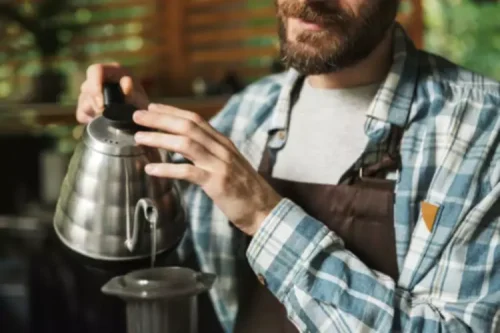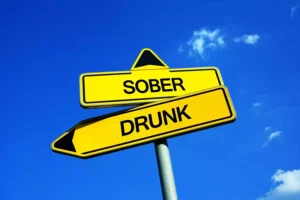
It is therapeutic as well as educational for all but is recommended for those 13 years and older. Going around the board and talking about feelings is the main point of this game based on Rational-Emotive Behavior Therapy (REBT). REBT is a psychotherapy that helps players identify their self-defeating thoughts and replace them with healthier choices. To play, each person draws a card and moves their game piece around the board. Players follow instructions from the spaces as well as from other players. The idea of the game is to encourage sharing and discussion with humor.

What is Residential Mental Health Treatment?

Theraplatform, an EHR, practice management and teletherapy tool built for therapists can help you share and organize your materials. Psychoeducation activities are foundational to substance abuse education within support groups. Group therapy provides a uniquely rich environment and powerful setting that can improve mental health.
Addiction Recovery: 10 of the Best Addiction Recovery Board Games

When people in recovery have difficulties communicating and being open within the recovery process, card games and learning cards can make the communication more easier. Courage To Change consists of a wide variety of card games and learning cards that remind people in therapeutic environments of the importance of new beginnings and learning new skills. One of the primary challenges in substance abuse support groups is addressing participants’ resistance and ambivalence towards change. Some individuals may not fully commit to recovery or struggle with mixed feelings about giving up substances. Skillful facilitators must create a nonjudgmental space where participants can openly express their doubts and concerns.
- It’s important for inpatient and outpatient rehab facilities to incorporate beneficial substance abuse group activities.
- The idea is to get everyone on the same page about what therapy may or may not work for each person.
- Similar to the Use, Abuse, and Recovery Game, but more detailed, this game has a variety of topics and categories.
- The following three PDF downloads are lists of ideas/questions for groups.
- Group therapy is used to guide clients through the process of gaining insight about themselves, others, and the world around them.
- As clients do this individually, they can share the effects of the problem with group members, which offers support and validation.
- For an added step, have the person answer a prompt and pass the prompt to a second person for an additional response or positive discussion.
Addiction Recovery Group Activities
- This is why it was so important for us to come up with a list of positive printable recovery games and activities.
- If you’re looking for more science-based ways to help others enhance their wellbeing, check out this signature collection of 17 validated positive psychology tools for practitioners.
- Role-play scripts can be an ideal tool to facilitate such sessions.
You can prepare for these situations by roleplaying as a group therapy activity. Group members will act out the events while discussing how to handle conflicts and achieve the healthiest outcome. Throughout your recovery, it’s important to be open about your feelings. Some recovery groups promote emotional openness by playing feelings charades. Bring some brainteaser exercises and optical illusions to a meeting. After playing with them, transition into a discussion about the fallibility of our senses and point of view.
That’s why some recovery groups encourage members to bring candles, essential oils, and other aromatic materials. Group members can then discuss their favorite scents and the feelings they provide. The world of mental healthcare and counseling uses various what are some ideas for substance abuse group activities? terminologies to describe treatments, mental health conditions, and more. One such common phrase is ‘level of care,’ which signifies the extent of services a patient needs. If you are struggling with addiction, it may seem like there is no end to it.
- There are numerous benefits to group therapy and peer support meetings that aren’t available in a one-on-one setting.
- Participants need assurance that their personal stories and struggles will not be shared outside the group.
- Group therapy can be used to explore and process a member’s triumphs, challenges, and relapses.
- Pass out one half sheet of paper to each client and ask participants to write down their fears.
- Mental health activities include any activities that stimulate growth and change, and challenge clients to explore and improve mental and emotional wellbeing.
Additionally, this can promote an environment where group members feel comfortable asking for help when they find themselves struggling. For group members who are new to recovery, group sessions can provide valuable education about addiction and recovery. Understanding the far-reaching effects of substance abuse is essential for individuals in recovery and their loved ones. These substance abuse group activities foster empathy and a deeper awareness of the ripple effects of addiction. Substance abuse group activities are a path to healing as the journey towards addiction recovery is rarely undertaken alone.
The Use, Relapse, and Recovery Journey Game
Draw or paint a picture of something in nature that has found a way to thrive in a harsh environment, such as a cactus in the desert, or tree roots bursting up from a sidewalk. Talk about your own resilience in the face of challenges, and https://ecosoberhouse.com/article/alcohol-neuropathy-symptoms-and-treatment/ how you might learn to be more resilient in the future. Discuss the upside to stress, i.e. the positive role that some forms of stress can play in your life. Have a group lecture and/or discussion about the neuroscience of addiction.
Customer Care
By recognizing these triggers, participants gain insight into their vulnerabilities and can develop proactive strategies to avoid or cope with these situations. Recovery games are a fantastic way to break the ice and encourage open communication within group therapy sessions. These activities help participants feel more comfortable, allowing them to engage more fully and build trust with one another. By incorporating recovery games, group therapy becomes a more dynamic and supportive environment where individuals can learn and grow together. Groups are lead by a trained group leader who prompts discussion and encourages everyone to participate.

